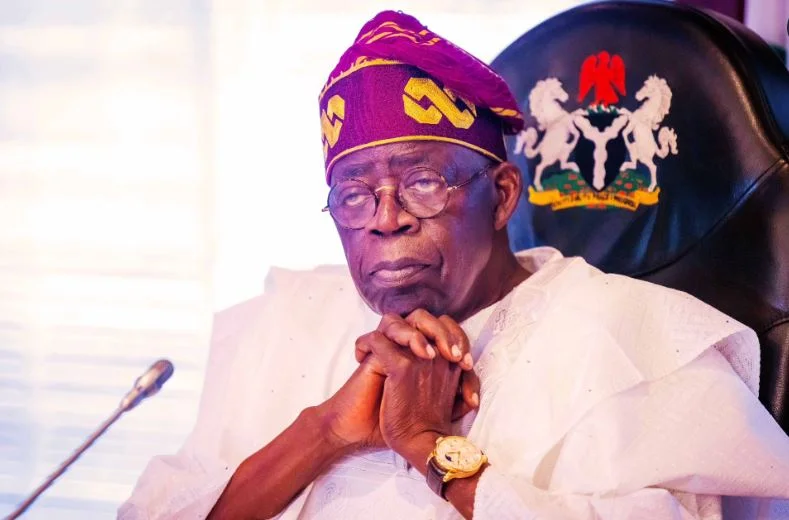President Bola Ahmed Tinubu’s political trajectory, from his early days in politics to his current role as Nigeria’s leader, has always been under scrutiny. Recent developments have added a new layer of intrigue to his story, with claims emerging that Tinubu transitioned from being an alleged subject of investigation by U.S. law enforcement to an ‘active asset’ for the Central Intelligence Agency (CIA).
Bola Tinubu, born in 1952 in Lagos, Nigeria, embarked on his political career in the early 1990s after returning from the United States, where he studied and worked. His ascent in Nigerian politics was marked by his election to the Senate in 1992, but it was not without controversy. In the U.S., it was alleged that Tinubu’s name surfaced in legal documents related to a drug trafficking investigation. A 1993 civil forfeiture case saw $460,000 seized from accounts linked to him, which was characterized as proceeds from narcotics trafficking.
Despite these allegations, Tinubu’s political career did not falter; instead, he became a pivotal figure in Nigerian politics, serving as the Governor of Lagos State from 1999 to 2007. His governance was noted for significant infrastructural developments, but his past in the U.S. remained a point of contention.
Recent reports have surfaced suggesting that Tinubu might have flipped from being an alleged suspect to a CIA asset. This claim stems from a memorandum filed in the United States District Court for the District of Columbia, where the CIA, FBI, and DEA opposed the release of unredacted documents related to Tinubu’s past investigations under the Freedom of Information Act (FOIA).
The agencies argued that revealing such information could compromise U.S. national security and the safety of individuals involved. “Human sources can be expected to furnish information to the CIA only when they are confident the CIA can and will do everything in its power to prevent the public disclosure of their cooperation,” stated a document from the CIA, hinting that Tinubu might have agreed to cooperate or provide intelligence in some capacity.
The revelation has sparked a polarized reaction in Nigeria. Critics, including opposition figures and journalists like David Hundeyin, who initially brought attention to Tinubu’s U.S. legal issues, argue that such connections could imply influence from foreign intelligence in Nigeria’s sovereignty. On the other hand, supporters and some within the government, like Dada Olusegun, Tinubu’s special assistant on social media, have dismissed these claims as baseless, emphasizing the need for focusing on governance rather than historical allegations.
An X user @shehu_mahdi wrote “Very recently, America’s CIA & FBI declared that Tinubu is an active asset to them. This simply means he is not free from various allegations against him relating to money laundering, cocaine peddling, and multiple personalities claim. fraud, forgery, etc, which have been severely reported by local and global media.”
“Ironically, the same American government “validated” his fraudulent election. The same CIA and FBI sat on and delayed his records that could have disqualified him from contesting the 2023 elections. They also watered down all the evidence and decided to cherry pick those pleasant to them and favorable to Bola.”
Read also: NNPCL unviels new energy roadmap, to build twelve CNG stations
“Lucky those who elect and choose to eat the forbidden fruit of deception,greed, and injustice, like Tinubu, will surely have destruction, Karma and nemesis awaiting them from all directions. It is just a matter of time”
Another X user with the name @BolanleA4 said; “Many of us have seen the Wiki Leaks between Tinubu and the US embassy, man has been snitching for decades.”
The suggestion that a sitting Nigerian president could be or has been an asset to a foreign intelligence agency like the CIA raises significant questions about national security, foreign influence, and the integrity of political leadership a source claimed. It underscores the intricate relationship between international intelligence operations and African political landscapes, where economic interests and political stability are often intertwined with foreign policy maneuvers.
As Nigeria navigates through its complex political and economic challenges, the narrative of President Tinubu’s alleged transformation from a suspect to a CIA asset adds another layer of complexity to his presidency. While concrete evidence of his status remains classified under national security exemptions, the discourse around this topic will undoubtedly continue to influence public perception and political discourse in Nigeria.






